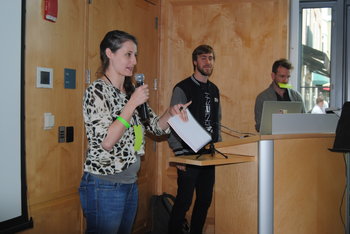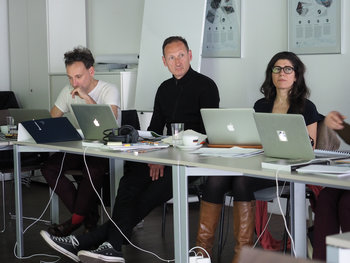Hostile
An audience that is likely to be hostile to you, what you represent or your message. This requires in-depth preparation such as anticipating challenges and how you will respond. For example, a manager who is called to explain to an executive team how the system they manage failed causing significant revenue and reputational damage.Friendly
An audience that is on your side. For example, a politician who addresses their supporters after winning an election.Distracted
An audience that isn't completely focused on your message. For example, a substitute teacher who takes over a class with clear discipline problems.Fun Loving
Those who are expecting to be entertained. These audiences will only engage with humor and interesting content and are easily demotivated and distracted.Critical
An audience that is expecting you to mislead them or that enjoy critical thinking. For example, customers at a sales pitch are often expecting you to exaggerate and try to use advanced techniques to influence them such that they are likely to be on guard.Executive
An audience that expects you to get to the point with candor and clarity. Executive audiences may interject to ask you to change direction or challenge you. For example, they may push you to go off on a tangent but then be disappointed that you didn't cover what you promised in your opening.Generalist
Audiences that want to understand things in terms of first principles. These audiences ask basic questions that can be hard to answer if you aren't prepared such as "why?" and "why not ...?"Expert
Audiences that are interested in obscure details. May ask questions that are difficult to answer because they are highly situational, technical or speculative. For example, "would a fiber reinforced aluminum valve casing be more resistant to heat stress?" A strategy for dealing with this is to candidly state when you don't know and continue on without getting sidetracked. Experts enjoy trivia that is aligned to their interests and may have a high concentration level.Lay
Audiences that aren't familiar with concepts and terminology in the domain you're covering. This requires plain language. This is an ability that is rare in some fields due to a condition known as curse of knowledge.Ideological
An ideological audience scans your message for keywords that they label as wrong and right. They are less concerned with the content of your argument and more concerned that you prove you're willing to conform to groupthink.Mixed
Audiences are rarely from a single type and are more often mixed. In this case, it is important to consider who you are trying to reach or to present information in different modes to reach everyone. For example, presenting an idea with both jargon and plain language.| Overview: Audience | ||
Type | ||
Definition | A set of people who will receive a particular communication such as a speech, advertisement or film. | |
Related Concepts | ||





























